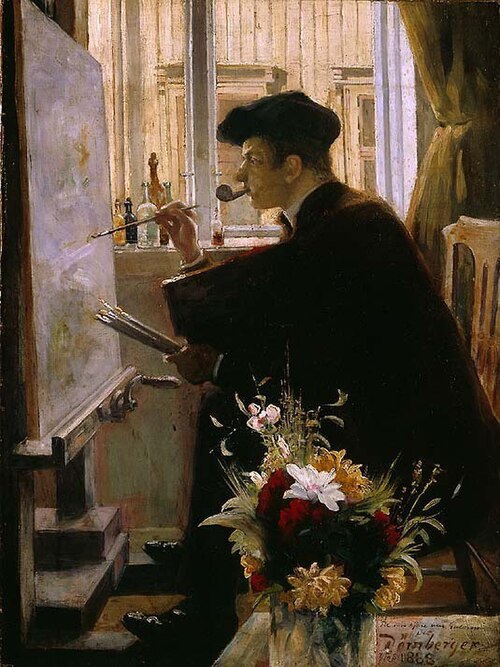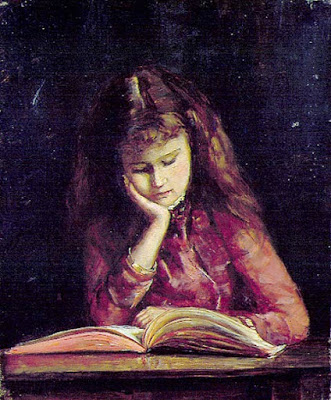The index for Hugh Vickers’ 1985 book Great Operatic Disasters contains an entry for which no page numbers are given:
Incompetence — better not specified
The index for Hugh Vickers’ 1985 book Great Operatic Disasters contains an entry for which no page numbers are given:
Incompetence — better not specified
“Jottings” from the notebooks of Bulgarian novelist Elias Canetti, published as The Human Province (1978):
“Square tables: the self-assurance they give you, as though one were alone in an alliance of four.”

Robert Runcie, Archbishop of Canterbury, cooperated as Humphrey Carpenter prepared his biography, believing that the book wouldn’t be published until after his passing. Eventually he was forced to write,
My dear Humphrey
I have done my best to die before this book is published. It now seems possible that I may not succeed. Since you know that I am not enthusiastic about it you are generous to give me space for a postscript.
Excerpts from the index of Together, Norman Douglas’ 1923 account of his travels in Calabria:
Anna, the old nurse, her passion for idiots and corpses, 39-40, for wolf-stories, 210; gets it hot, 91; shakes chocolate from a tree, 209; not old at all, 210
Ants, unreliable workmen, 120
Beds, local, their discomforts, 3; double, their uses, 218
Brunnenmacher (father) mountaineer, presumably hirsute, 25; (son) mountaineer, indubitably hirsute, 25; his smile and his blasphemies, 25, 26; takes author in hand, 28, 124
Cement, an abomination, 75, 128, 225
Cocoa, an abomination, 10
Cows, explode from over-eating, 204
Dachshund, lady-dog, sets a bad example, 4
Elephant-trap, a disused, 113
Erratic blocks, 176, 185, 186, 230
Falling in love, with a mountain, 30
Grand-aunts, the delight of childhood, 41, 47, 92, 214
Grandfather, maternal, a feudal monster, always spick-and-span, 196; excavates in imagination the Akropolis of Athens, 197; tells Prince Consort how to handle Queen Victoria, 198; sometimes mistaken for an angel, 199; dominates his harem, 200; vicious to the last, 201
Hare, how to shoot, 123; how not to cook, 203
Moralists, their limitations, 84
Ovid, blunders in botany, 83
Poets, should avoid towns, 82; generally born naked, 165; talk nonsense about pomegranates, 202
Theocritus, seldom caught napping, 83
Weisses Kreuz, hotel, its manager worth making love to, 203
Douglas had a penchant for droll indexes. His index for Some Limericks (1928) contains the entry “Spain, project for fertilizing arid tracts of, its ruler disinclined for tête-à-tête diversions”.

“Who knows if Shakespear might not have thought less, if he had read more?” — Edward Young

“Have you ever noticed … that all hot-water bottles look like Henry the Eighth?” — Max Beerbohm
Edmund Conti notes an unfortunate mannerism in Ngaio Marsh’s 1970 detective novel When in Rome:
Page 14: “Here,” he said in basic Italian. “Keep the change.” The waiter ejaculated with evident pleasure.
Page 49: “Nothing to what I was!” Sophy ejaculated.
Page 74: They could be heard ejaculating in some distant region.
Page 75: “Ah,” ejaculated Grant, “don’t remind me of that for God’s sake!”
Page 84: “Violetta, is it!” he ejaculated.
Page 87: “Good God!” the Major ejaculated.
Page 88: “Well!” the Major ejaculated.
Page 88: There were more ejaculations and much talk of coincidence …
Page 104: Marco gave an ejaculation and a very slight wince.
Page 109: “Phew!” said the Major, who seemed to be stuck with this ejaculation.
Page 140: “Eccellenza!” the Questore ejaculated.
Page 145: The Van der Veghels broke into scandalized ejaculations, first in their language and then in English.
Page 149: Sophy had given a little ejaculation.
Page 149: “I remember!” the Baron ejaculated.
Page 157: Finally Giovanni gave a sharp ejaculation.
Page 188: “We would exclaim, gaze at each at each other, gabble, ejaculate, tell each other how we felt …”
Page 194: Bergami ejaculated and answered so rapidly that Alleyn could only just make out what he said.
Conti adds, “Cigarette?”

Read proudly; put the duty of being read invariably on the author. If he is not read, whose fault is it? I am quite ready to be charmed, — but I shall not make believe I am charmed.
— Emerson, address at the opening of the Concord Free Public Library, Oct. 1, 1873
A selection of topics considered by the Athenian Society, a learned organization established in 1691 to answer “all the most nice and curious questions proposed by the ingenious of either sex”:
Bashfulness, why in Women more than Men?
Books least known to those that need ’em
Bath-waters, what makes ’em hot?
Dials, Clocks and Watches, when first made?
Eunuch, whether ever in Love?
Greenland, how should a Tree come there?
Hedg-hogs, how are they propagated?
Head or Feet, which Travels most?
Knowledge of Men or Things, which best?
Kissing, is there any Pleasure in it?
Love, its discovery
Lady, whether she may marry herself?
Love after Marriage, whether as great as before?
Matter, whether infinitely divisible or no?
Memory, how shall I strengthen it?
Nettle, how does it sting?
Original copy of the Bible, how proved?
Offence committed, which was the first?
Pre-existence of the Soul, how is it?
Rain-bow, its Cause
Socrates, did he wisely in bearing the Clamours of his Wife?
Vow never to Marry, whether I may break it?
Vows made to a Lady, whether binding?
Virginity or Marriage, which best?
Women, why more talkative than Men?
Readers submitted their questions anonymously, and the responses were published weekly.
In 1906, as George Bernard Shaw and his wife were looking for a house in rural Hertfordshire, they came upon a tombstone in Ayot St Lawrence:
Mary Ann South
Born 1825, Died 1895
Her Time Was Short
When asked why he chose the village as his home, Shaw said that if the biblically allotted threescore years and ten was considered a short life in Ayot, it must be a good place to live.